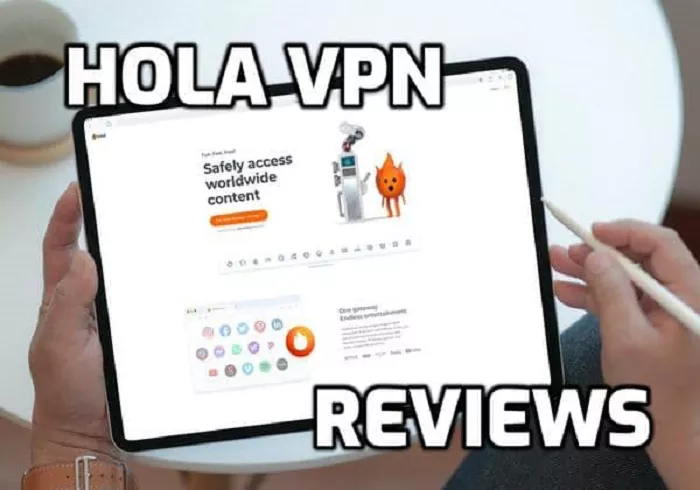Virtual Private Networks (VPNs) have become essential tools for internet users seeking to enhance their online privacy, access restricted content, and secure their data from potential threats. Among the myriad of VPN services available, Hola VPN has garnered attention due to its unique approach and widespread availability. However, the critical question remains: Is Hola a good VPN? This article delves into Hola VPN’s features, operations, and the implications for users, providing a comprehensive analysis to determine its efficacy and safety.
What is Hola VPN
Hola VPN distinguishes itself from traditional VPN services through its peer-to-peer (P2P) architecture. Unlike conventional VPNs that route user traffic through dedicated servers, Hola leverages the idle bandwidth of its users, effectively creating a network where each user’s device can act as a node for routing traffic. This model allows Hola to offer its services for free, positioning itself as a community-powered VPN.
Privacy and Security Concerns
Data Logging Practices
One of the fundamental purposes of a VPN is to safeguard user privacy by masking IP addresses and encrypting internet traffic. However, Hola’s data logging practices raise significant privacy concerns. The service collects extensive user data, including:
- IP Addresses: Hola logs users’ real IP addresses, which can be traced back to individual users.
- Browsing Activities: Information about websites visited and the duration of visits is recorded.
- Personal Information: Email addresses, payment details, and, if linked, social media account information are collected.
- Device Information: Details about installed applications and device specifications are logged.
These practices are contrary to the primary objective of using a VPN, which is to maintain anonymity and protect personal data.
Peer-to-Peer Network Risks
Hola’s P2P model means that users’ devices can serve as exit nodes for other users’ traffic. Consequently, any illicit or malicious activity conducted by one user could be traced back to another user’s IP address, potentially implicating innocent users in activities they did not commit. This structure poses significant risks, especially considering that users have limited control over the type of traffic routed through their devices.
Historical Security Incidents
Hola has a history of security issues that further exacerbate concerns:
- Botnet Exploitation: In 2015, Hola was found to have been exploited as a botnet, allowing third parties to execute malicious activities using the network of Hola users without their knowledge.
- Chrome Extension Breach: In 2021, Hola’s Chrome extension was compromised by hackers, leading to users being redirected to phishing sites, thereby exposing them to potential scams and data theft.
These incidents highlight vulnerabilities in Hola’s infrastructure and raise questions about its commitment to user security.
Performance and Usability
Streaming and Content Access
Hola VPN markets itself as a solution for accessing geo-restricted content, and it has had success in unblocking platforms like Netflix. However, users may experience inconsistent streaming performance, including buffering and reduced video quality, due to the variability inherent in its P2P network.
Torrenting and P2P Activities
For users interested in torrenting, Hola is not a viable option. The service explicitly blocks torrenting activities, limiting its usefulness for those seeking to share files over P2P networks.
Device Compatibility
Hola offers applications for various platforms, including Windows, Android, and iOS. However, it lacks support for macOS, which restricts its accessibility for a segment of users. Additionally, the absence of essential security features, such as a kill switch and robust encryption protocols, diminishes its overall reliability as a VPN service. citeturn0search4
Ethical and Legal Implications
The operational model of Hola, where users’ bandwidth is shared and can be utilized by others, raises ethical and legal concerns. Users may unknowingly become conduits for activities ranging from benign to malicious, including cyberattacks or unauthorized data access. This not only jeopardizes individual users but also poses broader cybersecurity risks. citeturn0news21
Expert Opinions and Warnings
Cybersecurity experts and organizations have issued warnings regarding the use of Hola VPN:
- Trend Micro Classification: The cybersecurity firm Trend Micro has classified Hola VPN as “high-risk” due to its security vulnerabilities and potential for misuse.
- PCMag Advisory: PCMag has highlighted the inherent dangers of Hola’s P2P structure, emphasizing the risks associated with sharing bandwidth with unknown parties.
These expert assessments underscore the potential dangers of using Hola VPN, particularly for users prioritizing security and privacy.
Alternatives to Hola VPN
Given the myriad of concerns associated with Hola VPN, users are advised to consider alternative VPN services that prioritize security, privacy, and performance. Reputable VPN providers such as NordVPN, ExpressVPN, and Surfshark offer robust encryption, strict no-logs policies, and reliable performance across various applications, including streaming and torrenting.
Conclusion
While Hola VPN’s innovative peer-to-peer model allows it to offer free services, this approach introduces significant privacy and security risks that undermine the fundamental purposes of using a VPN. The extensive data logging, potential for misuse of user bandwidth, historical security breaches, and ethical concerns make Hola an unsuitable choice for users seeking a secure and reliable VPN solution. It is imperative for users to carefully evaluate the operational models and privacy policies of VPN services to ensure they align with their security and privacy needs.

